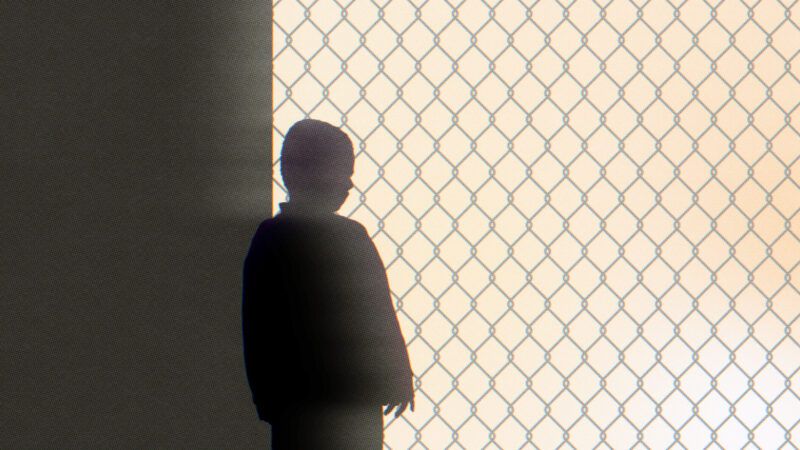A Michigan Task Force Proposes Making It Harder To Imprison Kids for Petty Crimes
While the task force is a move in the right direction, truancy shouldn't be up for criminal prosecution in the first place.

In June 2020, a 15-year-old Michigan girl was incarcerated for violating her probation. The crime: not doing her schoolwork during the COVID-19 pandemic. She had been placed on probation in April 2020 for fighting with her mother and petty theft. The girl, Grace (her middle name), was the subject of a ProPublica investigation highlighting the arbitrary cruelty of the Michigan juvenile justice system, which regularly imprisons children for petty offenses.
Last Monday, the Michigan Task Force on Juvenile Justice Reform approved measures to reform the state's juvenile justice system. The proposed changes are designed to prevent teenagers from becoming unnecessarily involved in the juvenile justice system by expanding the number of diversion programs designed to keep youth out of detention for nonviolent "status offenses" like truancy and running away, as well as low-level misdemeanor crimes. The recommendations also seek to increase training for lawyers representing juveniles, increase funding for community-based programs, and enact better data collection measures.
In Michigan, children are required to attend school until at least their 16th birthday. While the state has a vague definition of chronic absenteeism and truancy, students found to be "willfully" and repeatedly absent from school can be penalized as truants. According to a report from the Wayne State University College of Education, 20 percent of Michigan schoolchildren were "chronically absent" from school in 2019, meaning they missed at least 10 percent of the school year. In Detroit, 62 percent of public school students were chronically absent.
Frequently, truancy alone typically does not lead to a child becoming detained. Instead, children who commit other low-level misdemeanors, such as petty theft or drug use, are placed on strict probation regimens. According to Bridge Michigan, these probation orders can require everything from taking psychiatric medication to reading a book once a week. When a probation order requires regular school attendance, violations can easily land a child in juvenile detention.
According to the Detroit Free Press, the task force was created by an executive order by Democratic Gov. Gretchen Whitmer in June 2021. Over a year later, the task force has released its recommendations, suggesting sweeping changes designed to divert children, particularly those who have committed nonviolent offenses, from imprisonment in state juvenile detention centers. It is unclear if—or when—their recommendations will be passed as law. However, a July 18 press release from the governor's office claims that the task force will "work to translate and adopt the approved recommendations into legislation, administrative, court rule, and other policy changes." While the task force's recommendations have not yet been introduced as legislation, Whitmer is likely to face resistance from Michigan's Republican-controlled Legislature.
If the changes are implemented, children like Grace would be diverted away from the juvenile justice system and into community-based programs. Instead of being incarcerated, children with oft-criminalized behavioral issues could be sent to counseling programs or substance abuse programs. The evidence for these programs is optimistic. According to a 2012 study, youth placed into diversion programs are 45 percent less likely to re-offend than youth placed in traditional court proceedings.
However, while getting help for struggling children is obviously a move in the right direction, these programs shouldn't be pitched as an alternative to incarceration. Incarceration simply shouldn't be a legal option in the first place for almost all juvenile offenses. Further, the government should not be sanctioning children, even with court-ordered therapeutic programs, for "status offenses." Status offenses are a particularly trivial form of legal offense, only labeled a crime because the person committing them is a minor. Punishing truancy and curfew violations should not be the role of law enforcement.
Continued legal jurisdiction over these actions only works to funnel children with behavioral problems or unstable family lives into the criminal justice system. Parents with financial resources can much more easily obtain mental health care, substance abuse treatment, and other resources struggling children need to succeed. Further, many states charge parents fees when their children enter the justice system. Probation fees, public defender fees, and other court fees can become extremely burdensome for poor parents, which can keep their children trapped in legal trouble through no fault of their own.
While policy proposals like the Michigan task force's are certainly a step in the right direction, they fail to address the fundamental problem with the juvenile justice system—that it even has the ability to imprison children for petty crimes in the first place.


Show Comments (6)